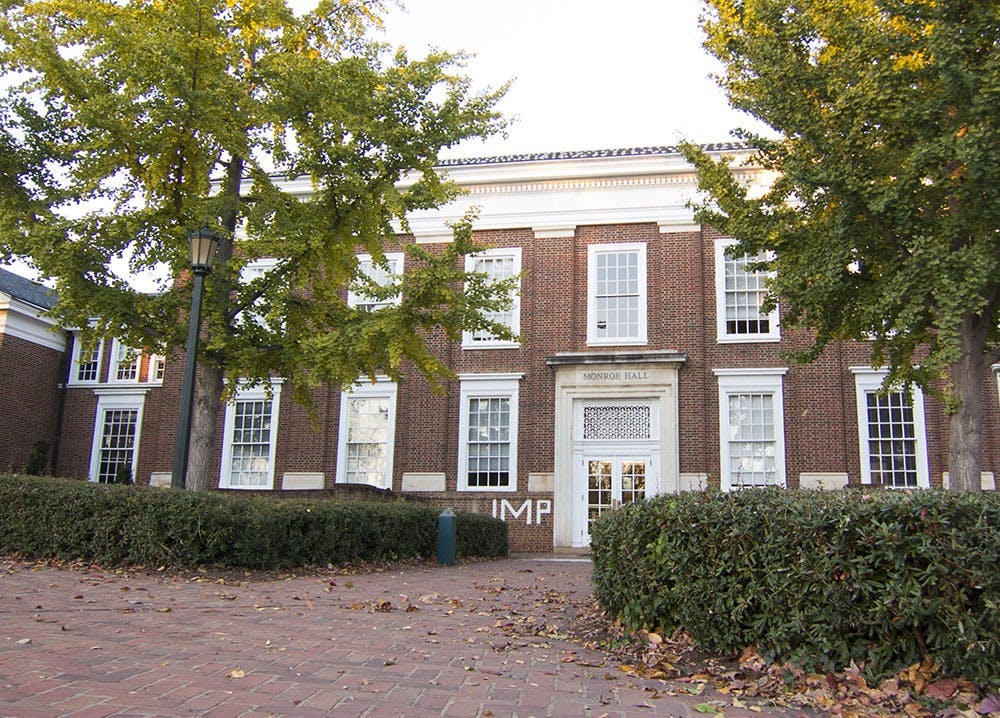Attacks on the College’s area requirements have a long history in The Cavalier Daily Opinion section. In 2002, an Opinion columnist opposed the area requirements, arguing that the extensive time required to complete them stifles the pursuit of one’s chosen major. In 2014, another columnist claimed that the majority of the required fields fail to prepare students for the practical job market. The most recent article came in response to my assertion that the Echols Scholar Program, with its exemption from area requirements, lacks a sufficient breadth of study to be a legitimate liberal arts experience. In his article, columnist Connor Fitzpatrick contends that area requirements obstruct intellectually curious students from exploring a full spectrum of courses. All three arguments in opposition to the requirements are predicated on the theory that giving students complete freedom of choice in class selection will enhance their ability to take worthwhile classes. However, the worth of a particular course is not always self-evident. The skills learned in one class can apply across several disciplines, to various majors, and the elimination of the area requirements would remove institutional incentives to take such classes.
In his article supporting the elimination of the area requirements, Fitzpatrick proposes a thought experiment: “What sort of classes would students take if there were no area requirements?” His answer is classes which students have a genuine interest in. Realism derived from our demanding academic climate has a different answer. In the hyper-competitive environment which characterizes the University, students would justifiably enroll in classes which would allow them to achieve the coveted 3.7 GPA. The logical choice for most first year students, especially those applying to competitive degree programs, would be to take as many classes within their academic comfort zone as possible while also fulfilling the prerequisites of their prospective major. However, challenging classes outside of a student’s chosen concentration can yield relevant skills beyond their face value. For example, the ability to effectively deliver an argument is a valuable skill cultivated by the two writing requirements which serves all majors. Area requirements demand students to challenge themselves in fields where they lack expertise, despite the risk of tarnishing their GPAs.
Even when students look beyond the Course Forum’s difficulty rankings to choose their classes, the limited scope of most high school curriculums reduces first year students’ initial range of interests. Thus, even if we grant Fitzpatrick’s claim that students would take classes they have genuine interest in, important classes may still be overlooked. The College of Arts and Sciences expands general subjects, like U.S. history, into an extensive offering of diverse courses. This system, without area requirements, would enable students to immediately limit their focus to one subject based on their previous experiences in high school courses. While conservatories and graduate schools are designed to foster concentration in a single course of study, liberal arts schools should promote exploration. Few first-years enter the University with complete insight into their true academic passion, and college area requirements provide an essential framework for true intellectual curiosity.
Area requirements encourage enrollment in courses that would be otherwise overlooked. This enrollment serves a dual-purpose of expanding students’ breadth of knowledge and supporting niche departments. The astronomy department, for example, accommodates around 15 to 25 majors at any given time. The major is dwarfed, for example, by to the roughly 350 students per graduating class enrolled in the Commerce School, but valuable nonetheless. The natural science and mathematics area requirement supports the department by encouraging enrollment from upwards of a thousand students in astronomy classes each semester. The marginalization of obscure departments would be an intellectual loss for the University community and beyond. Last January, the University’s astronomy department delivered the APOGEE-South, an infrared spectrograph, to Chile’s Las Campanas Observatory, making a valuable contribution to the international astronomical community. Small major programs across the country across the nation face the consequences of low enrollment due to inadequate funding. College area requirements help to counter these consequences and compel students to try their hand in little-known subjects.
The problem with course selection lies not in the courses themselves, but in students’ failure to realize the importance of particular courses. While total freedom of choice in course selection seems ideal, it fails to provide a foundation for academic exploration. Without requirements, pressure to achieve a competitive GPA and incomplete knowledge of potential interests have the potential to mislead students as they choose their schedule. Moreover, area requirements bolster smaller, research-based departments. The argument that students are able to follow their intellectual curiosity into a broad array of relevant classes demonstrates an impractical level of optimism. Rather than defying the long-standing tradition of area requirements, students should channel their vast skill set into a valuable liberal arts degree.
Charlotte Lawson is an Opinion columnist for The Cavalier Daily. She can be reached at opinion@cavalierdaily.com.







